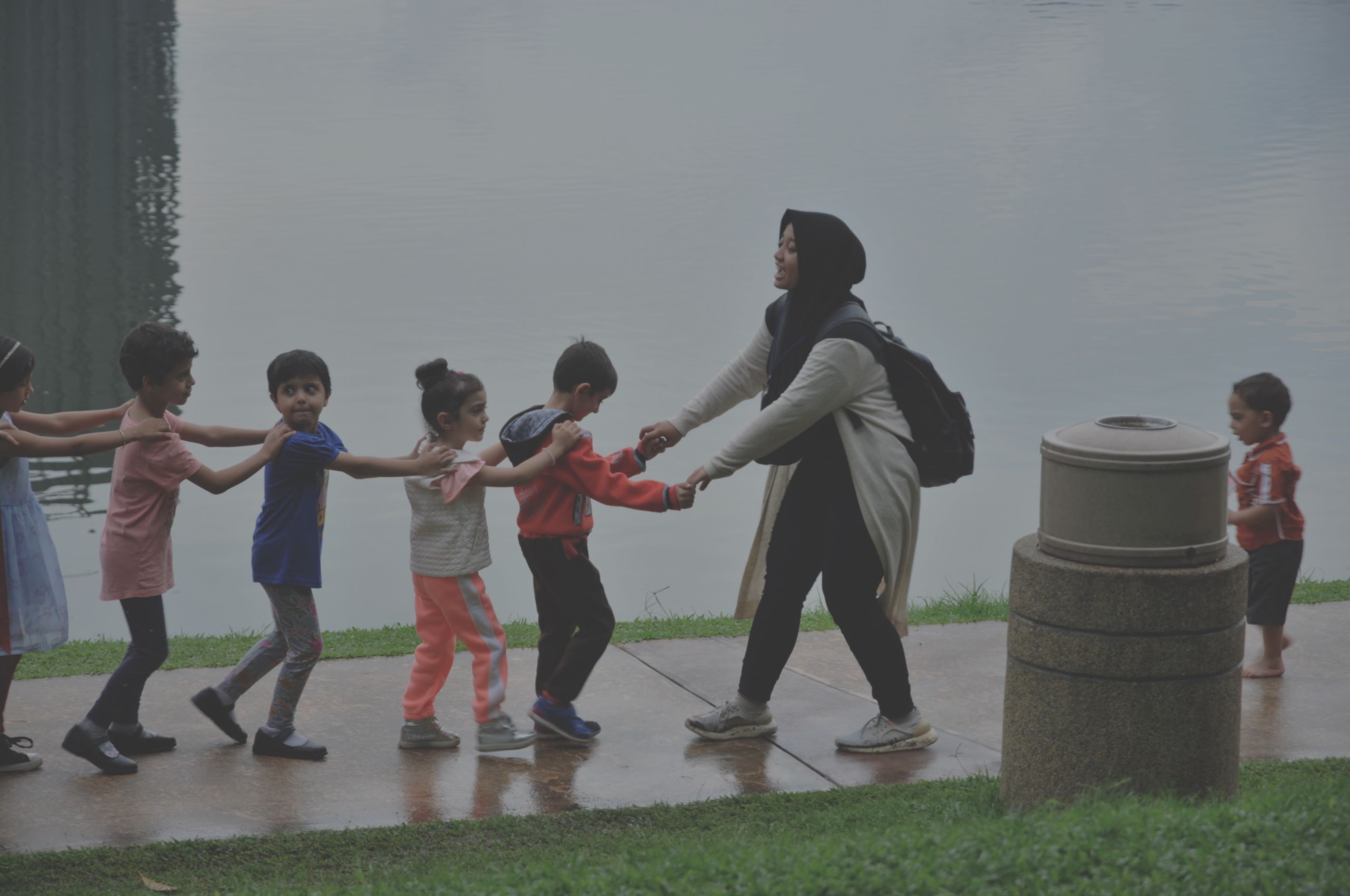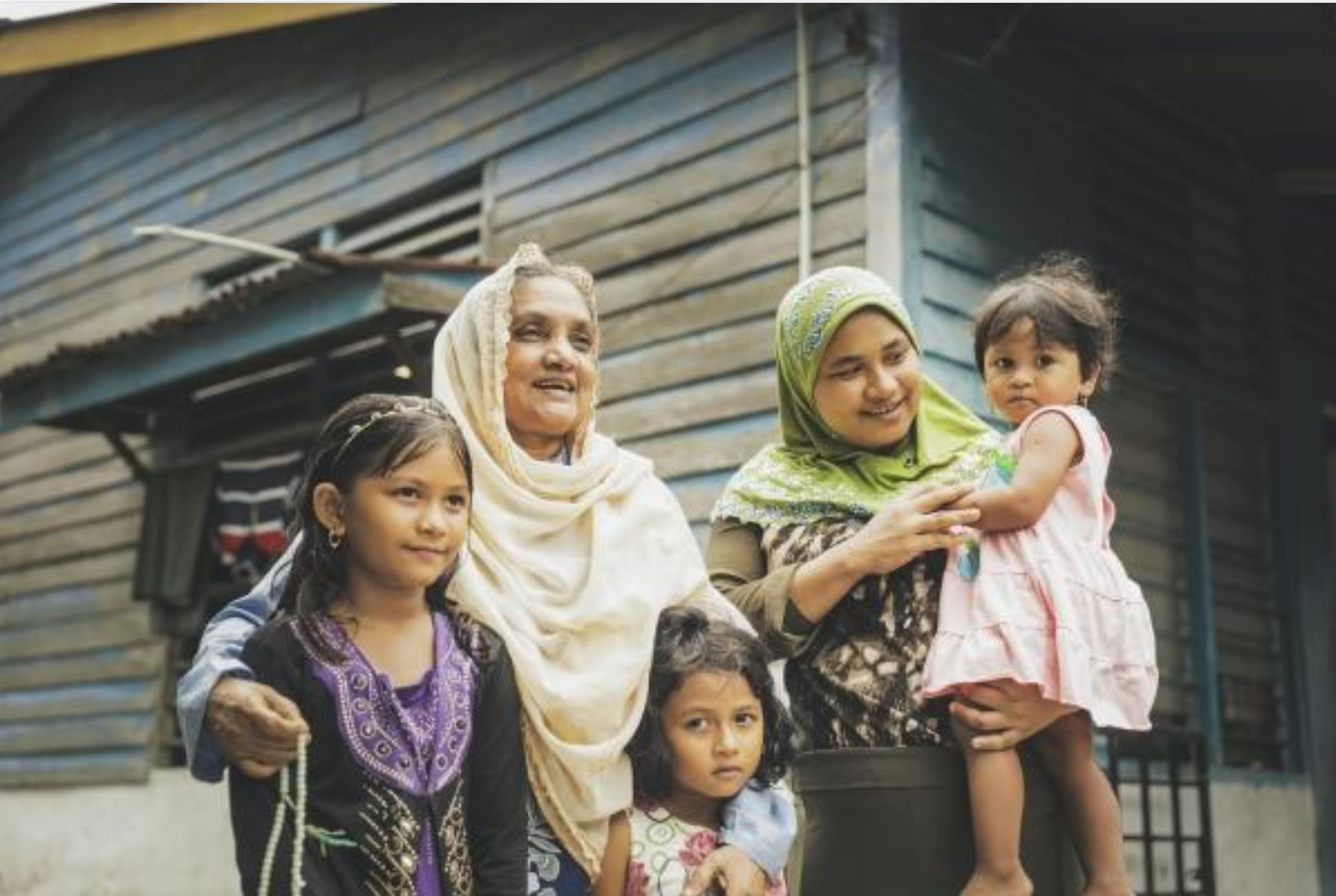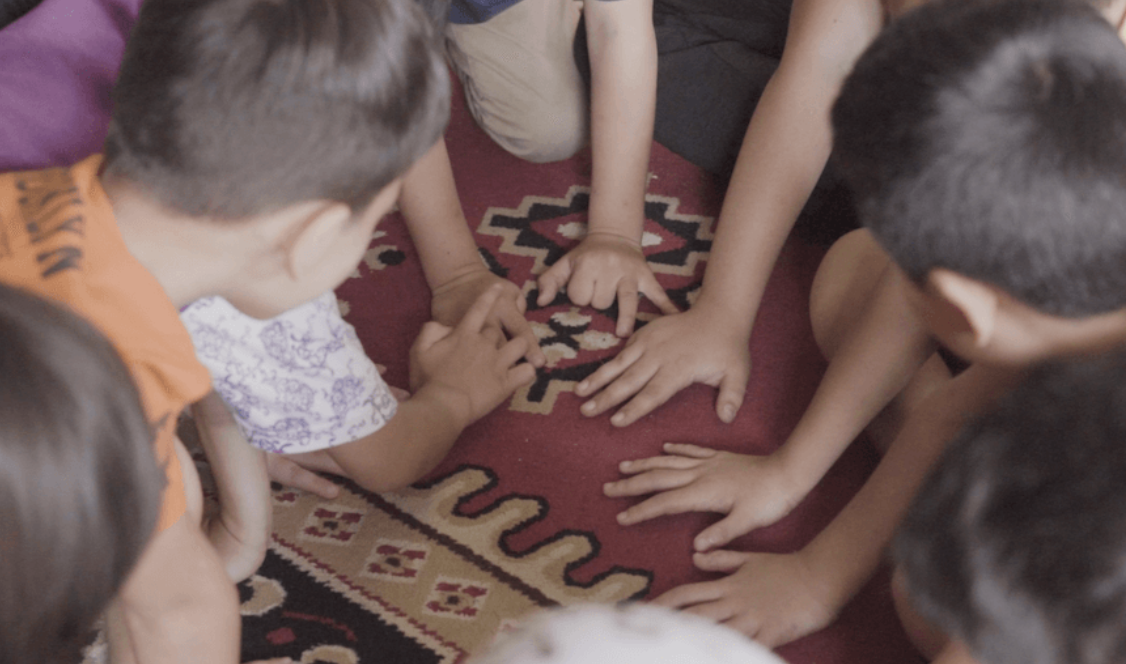In Malaysia, a Refugee Community
that Keeps Giving
From the heart of one refugee community to the heart of its host.
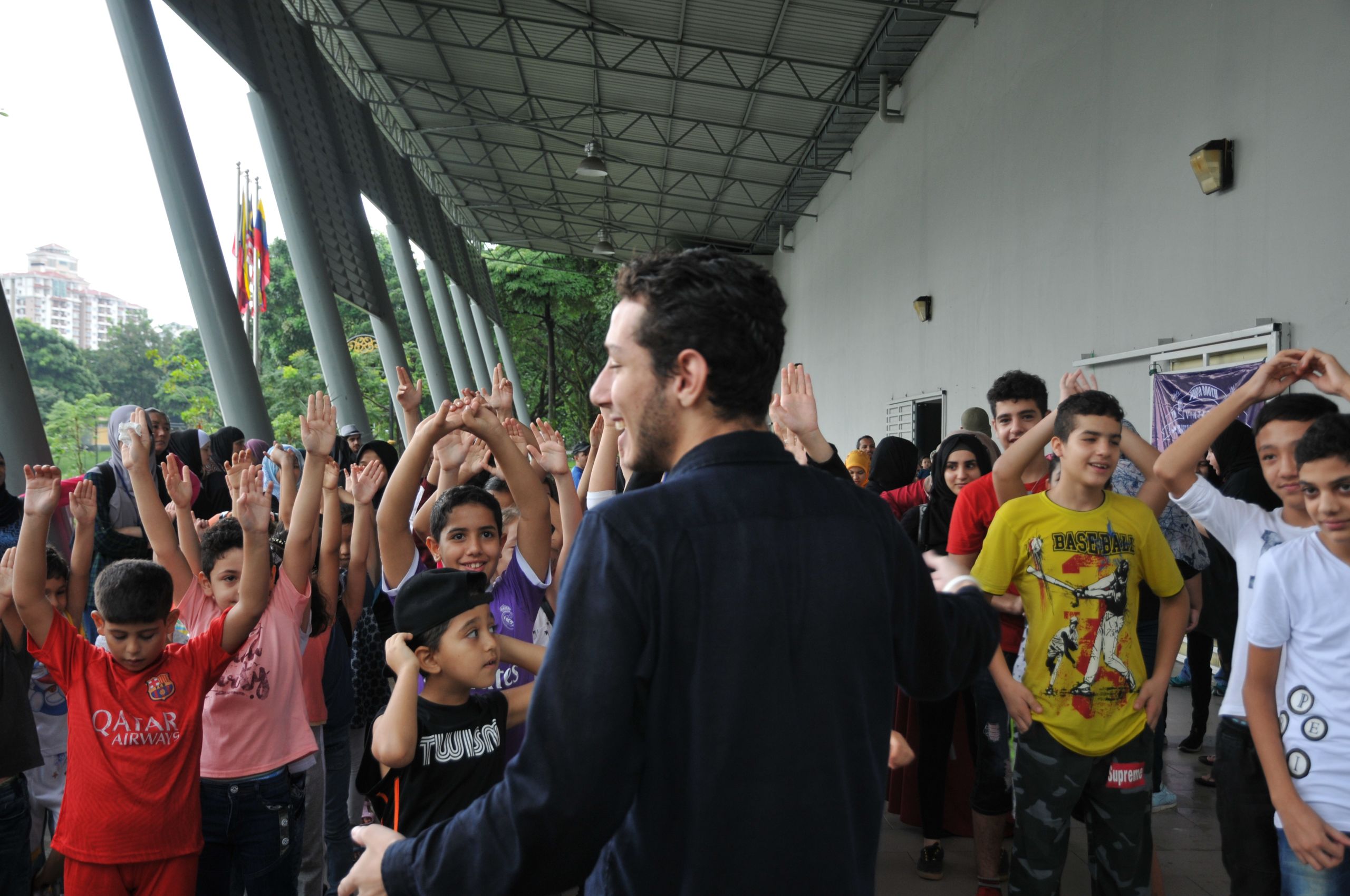
“We are in this together. We must help each other and do whatever we can during this time of crisis."
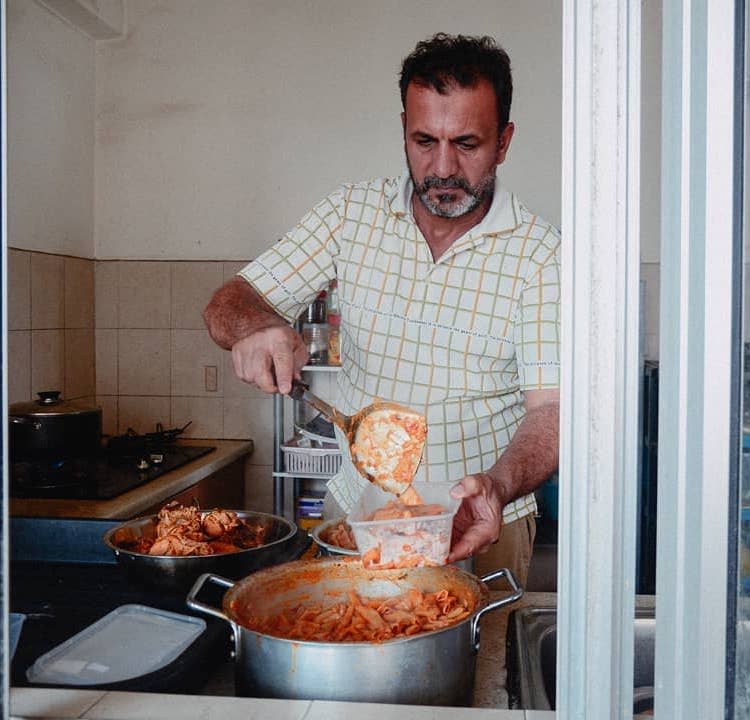
Um Saif from Iraq (who cooked on Day 5) made lunch - pasta and chicken.
Um Saif from Iraq (who cooked on Day 5) made lunch - pasta and chicken.
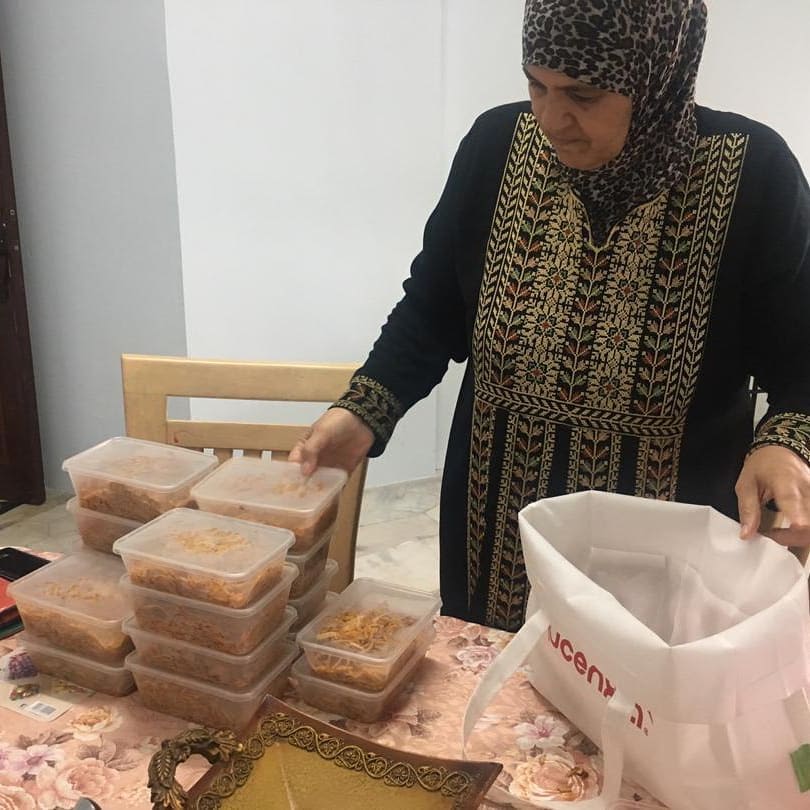
Eman Mfleh from Syria preparing the homecooked meal for delivery.
Eman Mfleh from Syria preparing the homecooked meal for delivery.
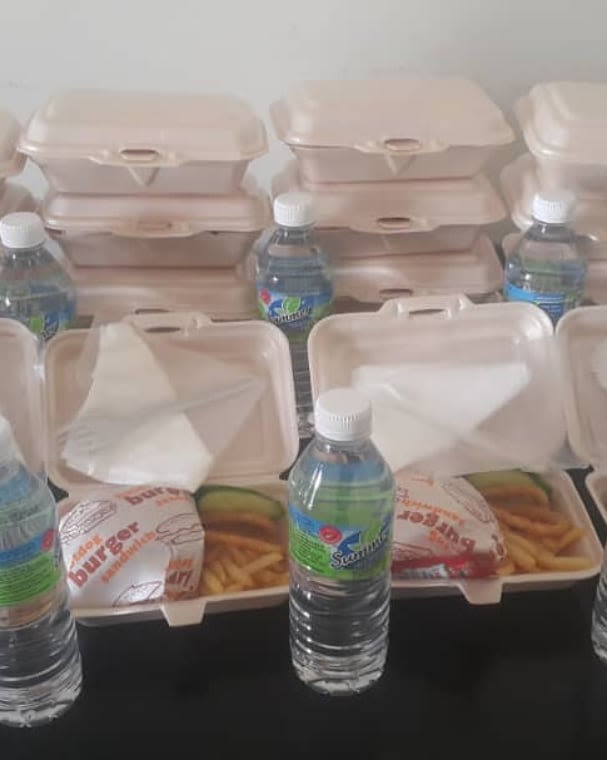
Chef Abo's delicious burger lunch for the healthcare frontliners at Ampang Hospital.
Chef Abo's delicious burger lunch for the healthcare frontliners at Ampang Hospital.
When COVID-19 hit Malaysia in March 2020, the country was brought to a standstill. The Movement Control Order (MCO), which prohibited the operation of all but essential services, was in full swing as Malaysia grappled with the fallout of the pandemic.
At the forefront of the fight against the virus were Malaysia's frontline workers, like medical staff, who were quickly overwhelmed.
Many Malaysians came forward to help them. But one group of supporters in particular stood out for being a little different.
Refugees.
(Click the arrows to listen to those we spoke to, in their own words)
Chef Abo Mohamad from Syria was one of the first to respond to the initiative...
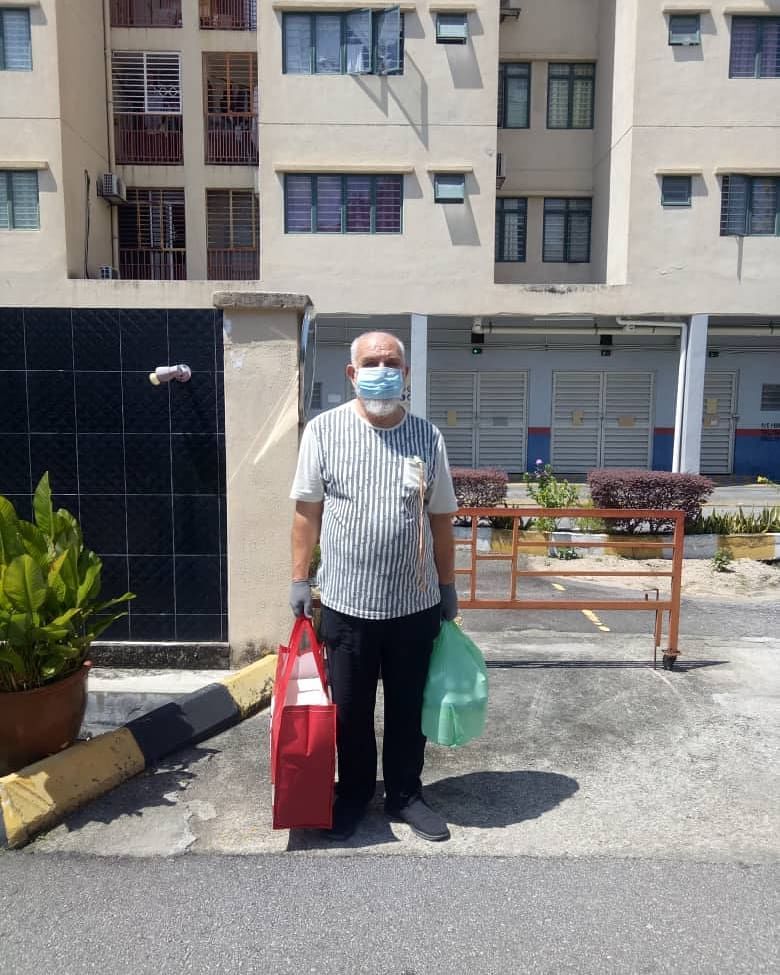
Chef Abo Mohamad is ready for the food delivery.
Chef Abo Mohamad is ready for the food delivery.
For 24 days, 14 chefs from different refugee communities cooked and delivered food to frontline health workers at Ampang Hospital. Hailing from Syria, Afghanistan, Yemen, Palestine and Iraq, they set aside the multiple challenges they face daily as refugees, answering the call for support without hesitation.
The person that brought them all together? Hasan Al-Akraa, founder of the Al-Hasan Volunteer Network, himself a refugee.
"Malaysia has done so much for me. I came here when I was just 12 years old in 2012 and now I'm considered an adult. So I basically grew up here and Malaysia is like my second home."
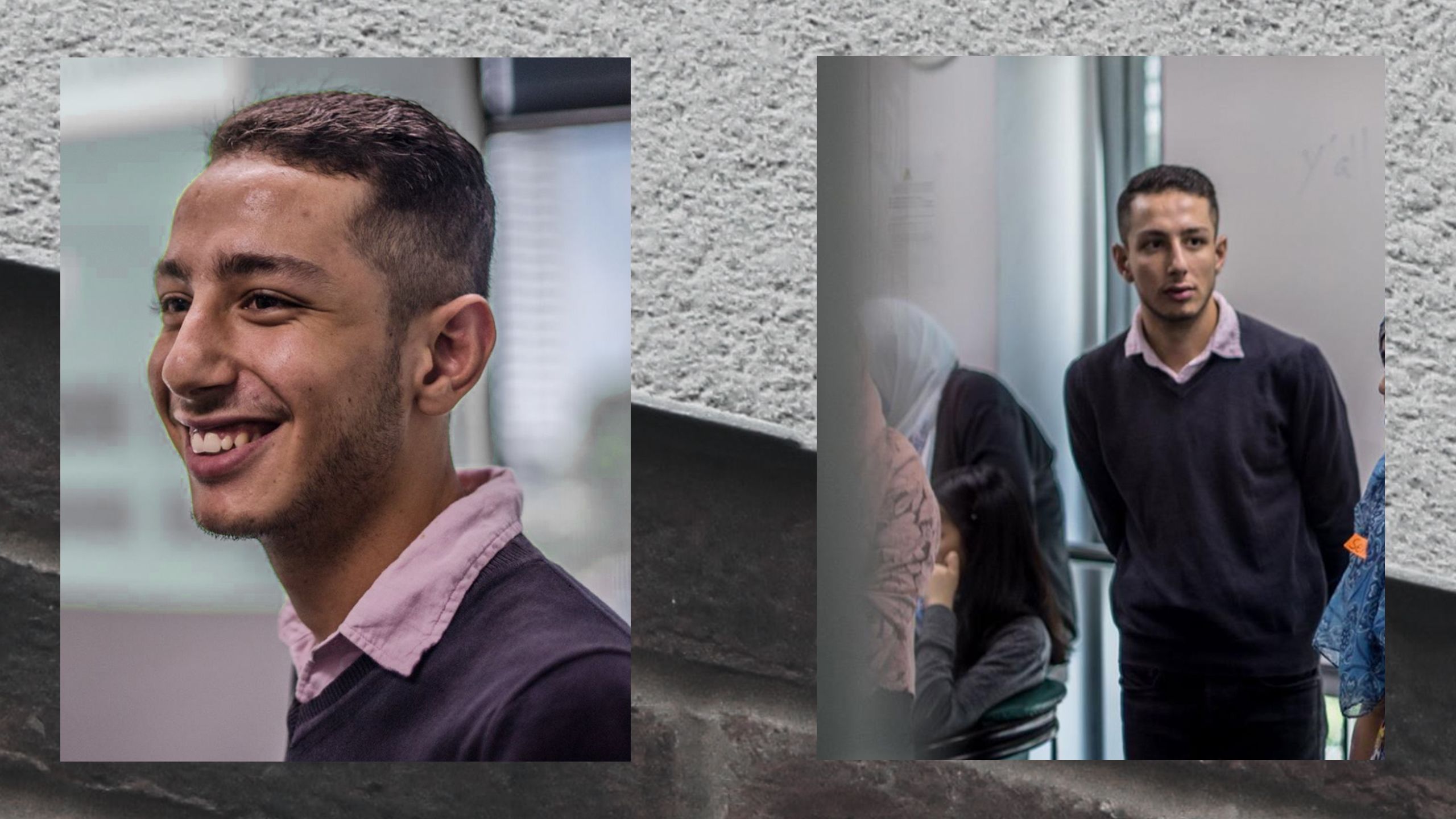
Background Photo by Siora Photography on Unsplash
Background Photo by Siora Photography on Unsplash
A world divided
Before Hasan came to see Malaysia as his second home, Syria was where he spent his childhood. He was 12 when his family, fearing for their lives as war ravaged the nation, fled home for Malaysia.
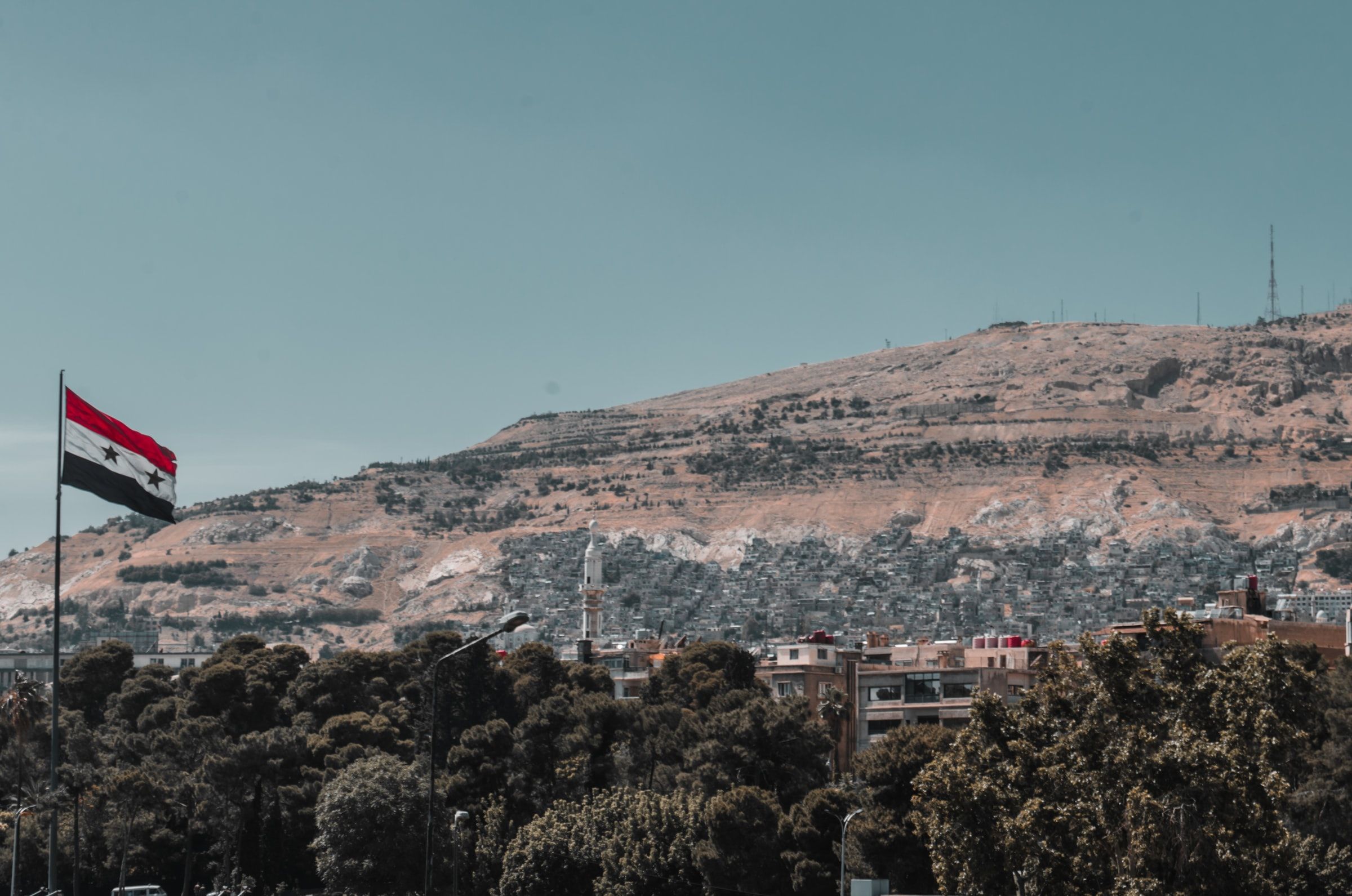
Photo by Mohammad Helal on Unsplash
Photo by Mohammad Helal on Unsplash
As of June 2020, at least 79.5 million people around the world have been forced to flee their homes. Among them are nearly 26 million refugees, around half of whom are under the age of 18.
There are also millions of stateless people, who have been denied nationality and lack access to basic rights such as education, health care, employment and freedom of movement.
Source: UNHCR
In Malaysia, Hasan, at age 14, found a job to support his family but was arrested for working...
Sent away in a lorry with many other refugees, Hasan was denied any contact with his parents...
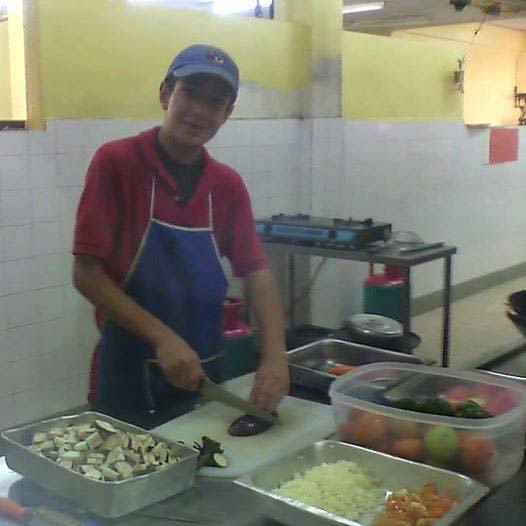
A young Hasan working in a restaurant.
A young Hasan working in a restaurant.
Can refugees work in Malaysia?
Malaysia is not a signatory to the UN refugee convention and classifies refugees as illegal immigrants. Therefore, they have no legal right to work. Those awaiting registration are particularly vulnerable to detention and deportation.
Malaysia hosts an urban population of some 177,000 UNHCR-registered asylum-seekers and refugees, in addition to an estimated 10,000 stateless persons.
There is a much larger undocumented migrant population in Malaysia, estimated at between 2 to 4 million people.
Source: UNHCR
"I was released on the ninth day but I didn't know what to feel. There are still other children being detained. I'm sure there is something to be done but I felt helpless and powerless."
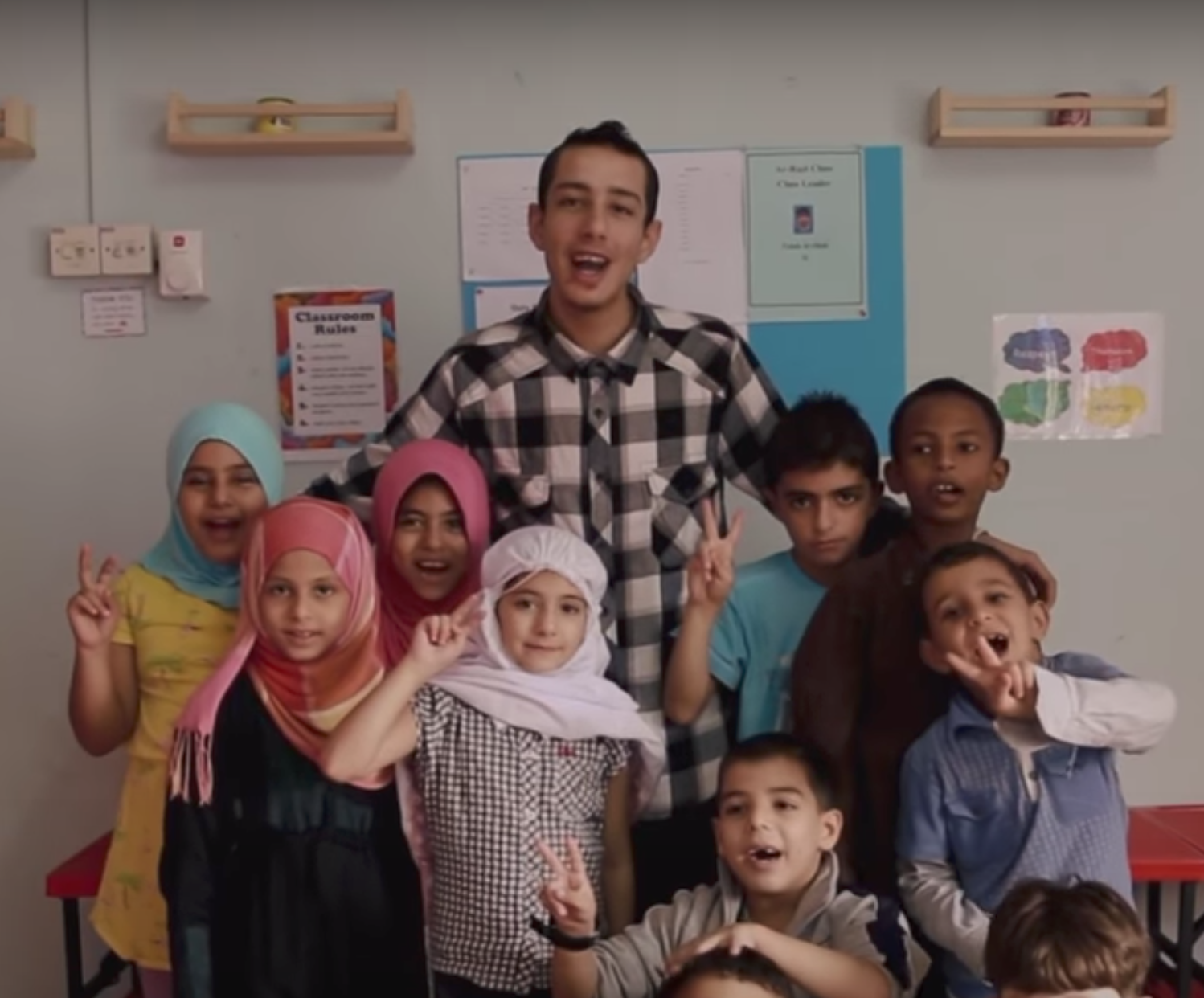
Hasan volunteering at a refugee school
Hasan volunteering at a refugee school
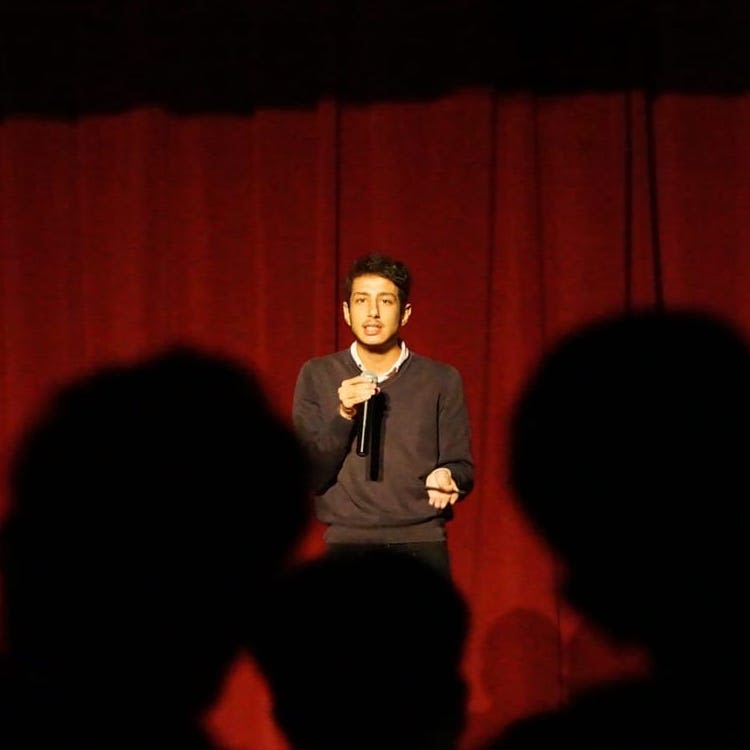
Hasan sharing about his experience to create awareness for the refugee situation.
Hasan sharing about his experience to create awareness for the refugee situation.
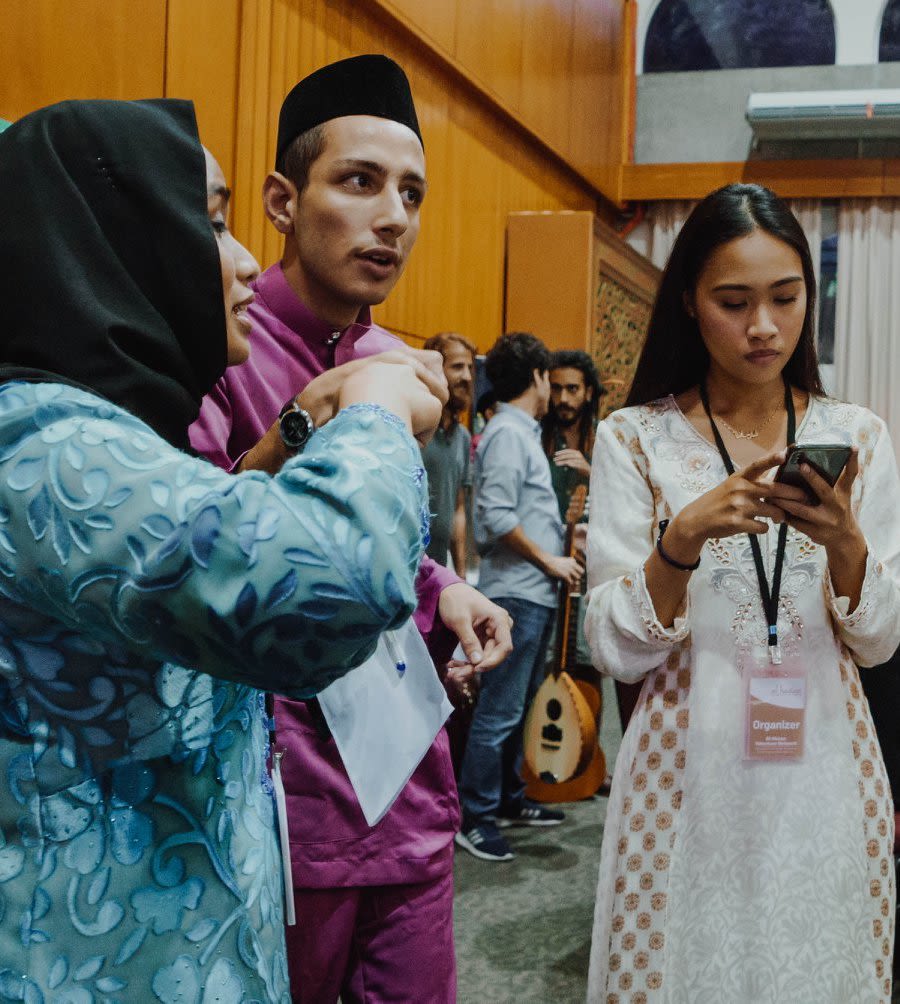
Farhana (right) getting ready for a community event.
Farhana (right) getting ready for a community event.
A spark to help
After Hasan's traumatic arrest, he began exploring ways to support his community. He started to volunteer at refugee schools to help educate refugee children and also help to advocate for their safety and protection.
In 2016, Hasan co-founded Al-Hasan Volunteer Network with Nur Farhana Zolkifli, a Singaporean volunteer who saw Our Better World's 2017 story on Hasan, and was moved to befriend and support him in helping the community.
The network didn't limit themselves to supporting the refugee community. If anyone, including Malaysians, needed aid, Hasan and his team were ready to help...
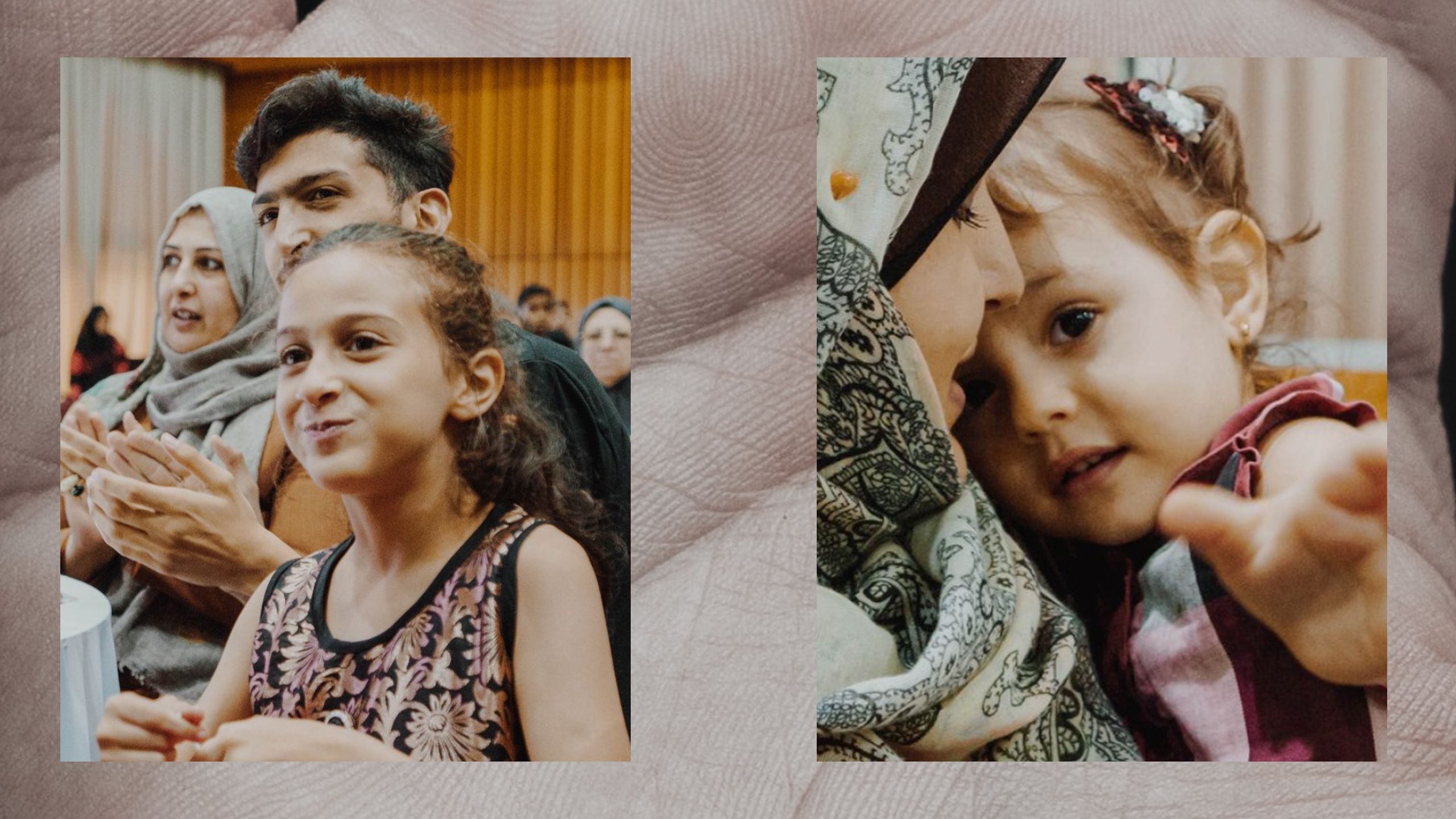
Background Photo by Luis Quintero on Unsplash
Background Photo by Luis Quintero on Unsplash
A community gathers to serve
Working with other organisations, the network has supported a wide spectrum of community needs such as health checks and medical fundraising for emergency cases, education for refugee children, skills-based workshops for adults, youth development and community events. These include a project called Our True Colours, where murals were painted at refugee schools, orphanages and elderly homes to brighten up the environment.
A touching moment for Hasan...
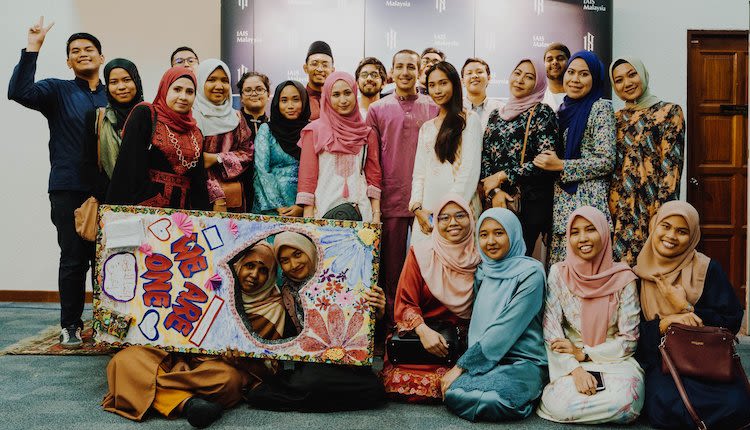
Team AHVN at Eid celebration
Team AHVN at Eid celebration
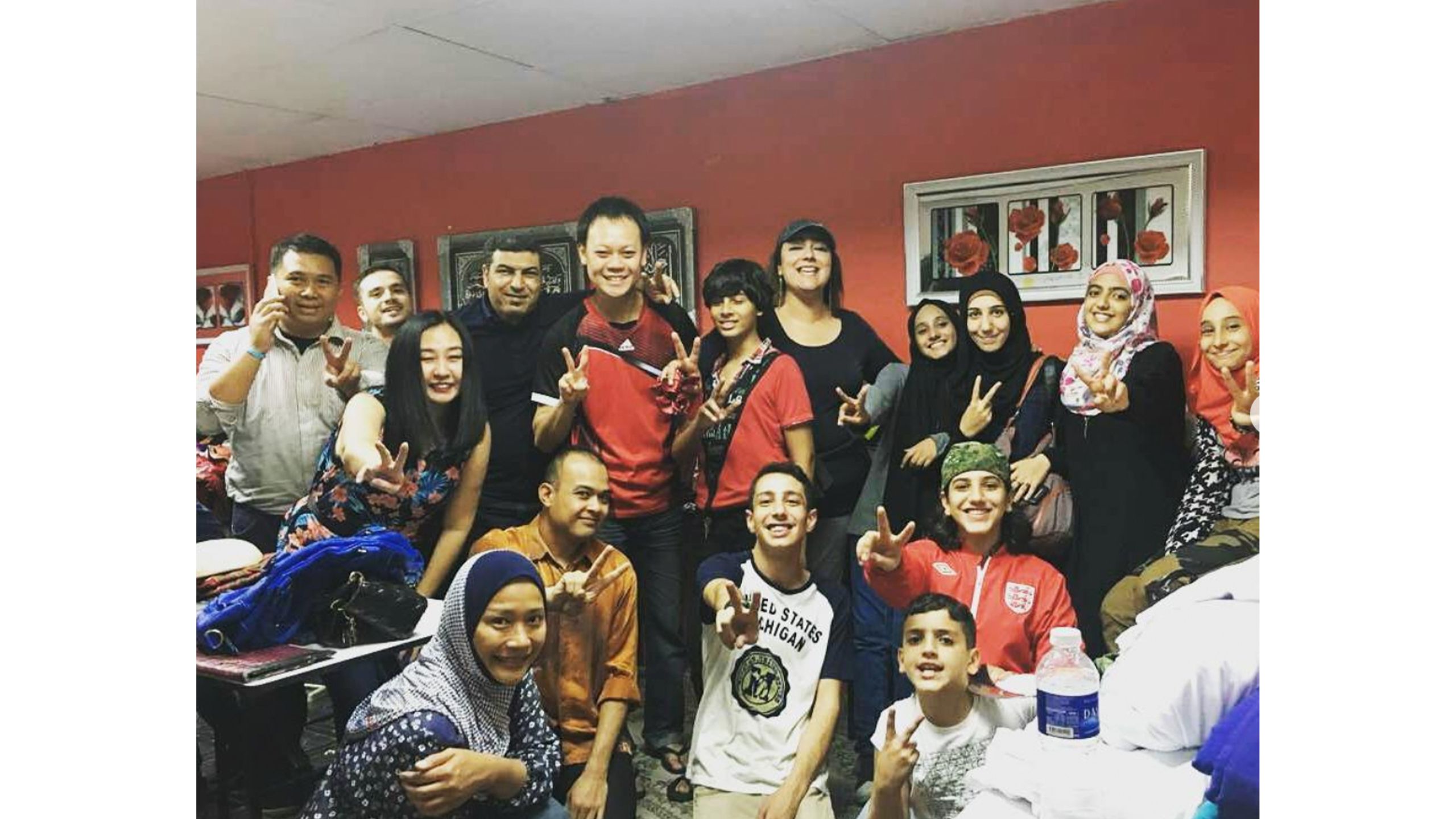
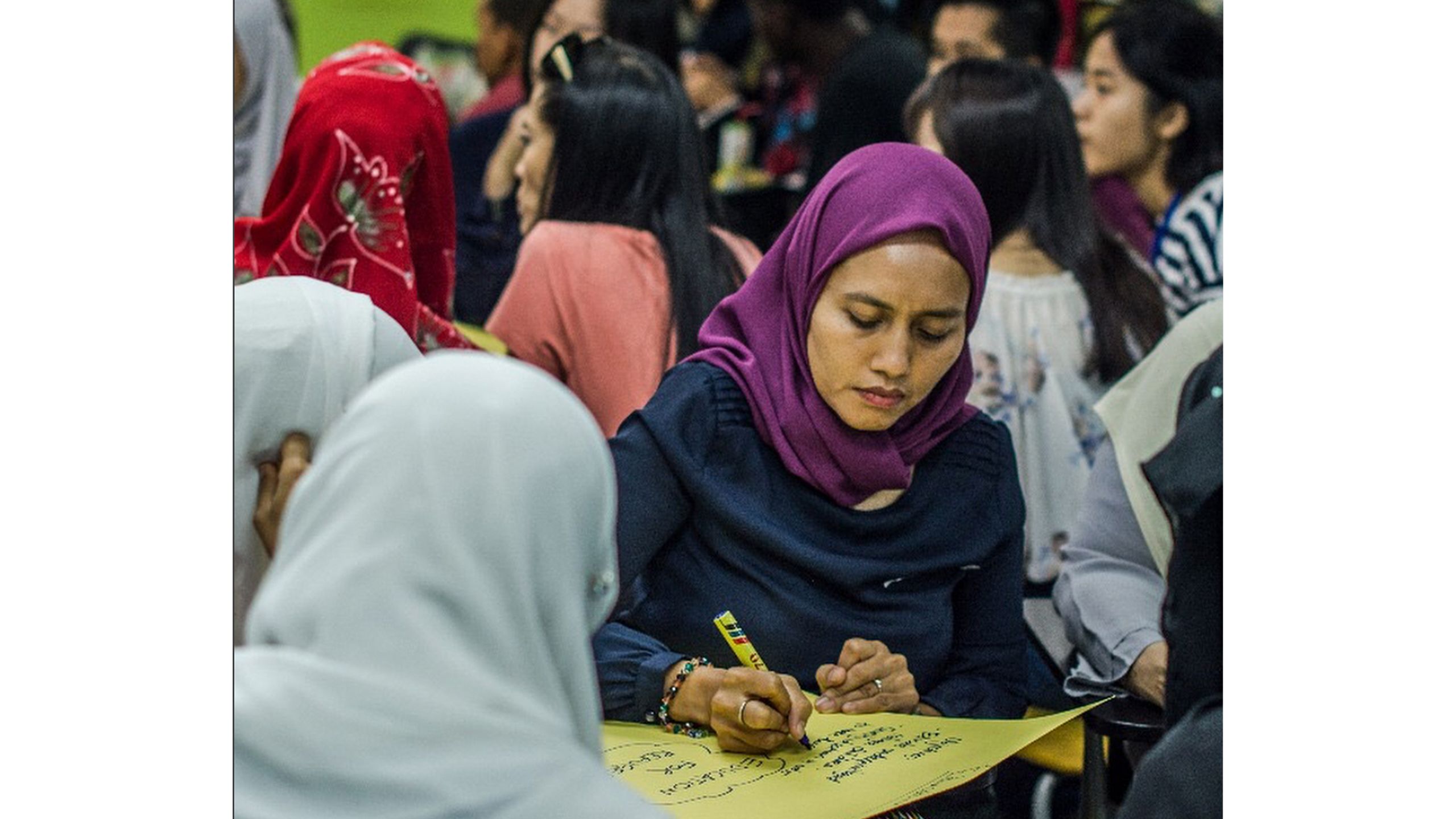
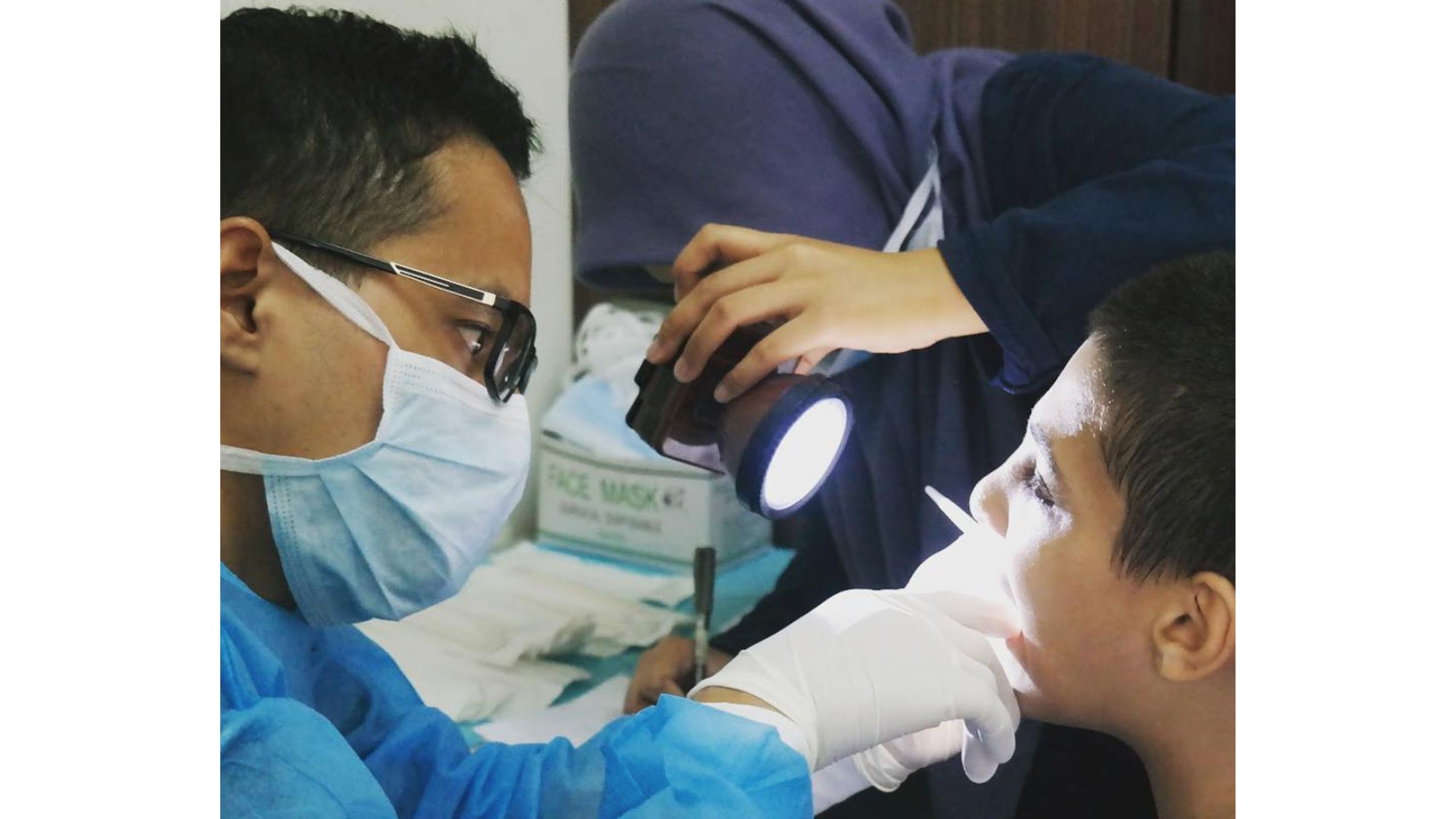
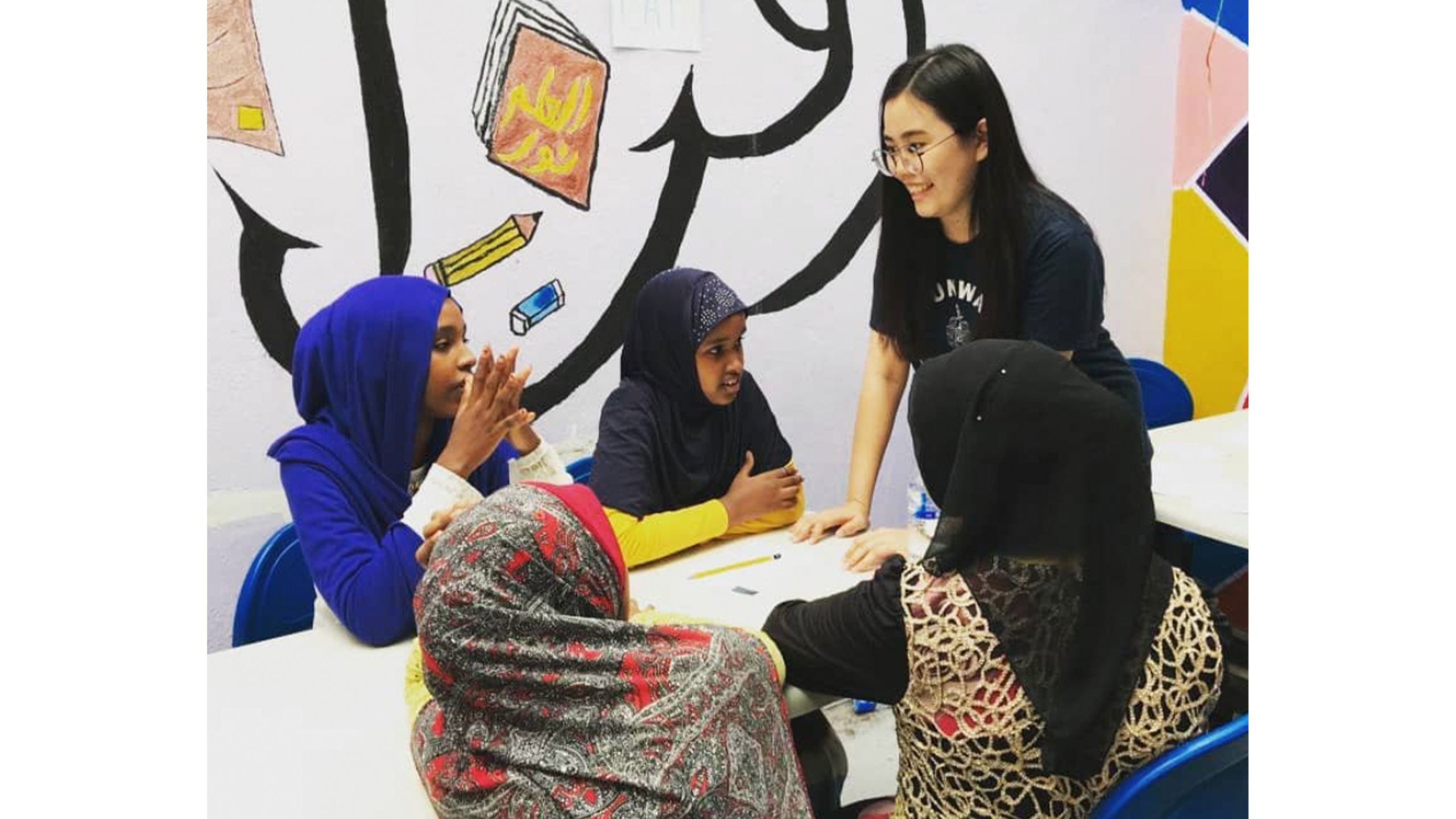

Volunteers for free market event
Volunteers for free market event

Community service workshop
Community service workshop

Mobile medical & dental check up
Mobile medical & dental check up

English lessons
English lessons
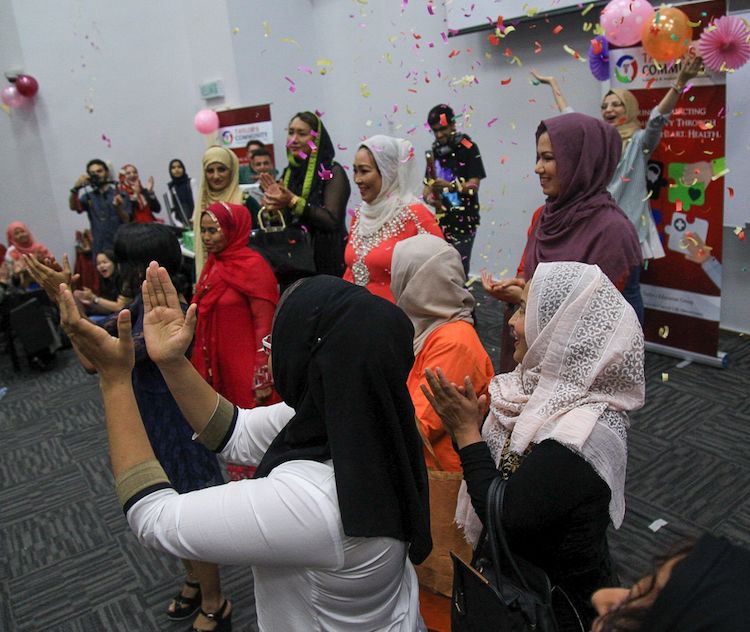
A Mother's Day celebration organised by Al-Hasan Volunteer Network.
A Mother's Day celebration organised by Al-Hasan Volunteer Network.
The network now has 500 volunteers, many of them refugees.
Loujayn Shalabi, a volunteer and refugee from Syria, shares that...
Equally important are the Malaysian volunteers who believe in the network's mission and want to shift fellow Malaysians' perspectives on refugees.
As the network's volunteer general manager, Nurul Zamre, a Malaysian media professional, uses her skills to raise awareness for their events and causes on their social media platforms.
As a volunteer, Loujayn witnessed the harsh reality faced by some of her fellow refugees...
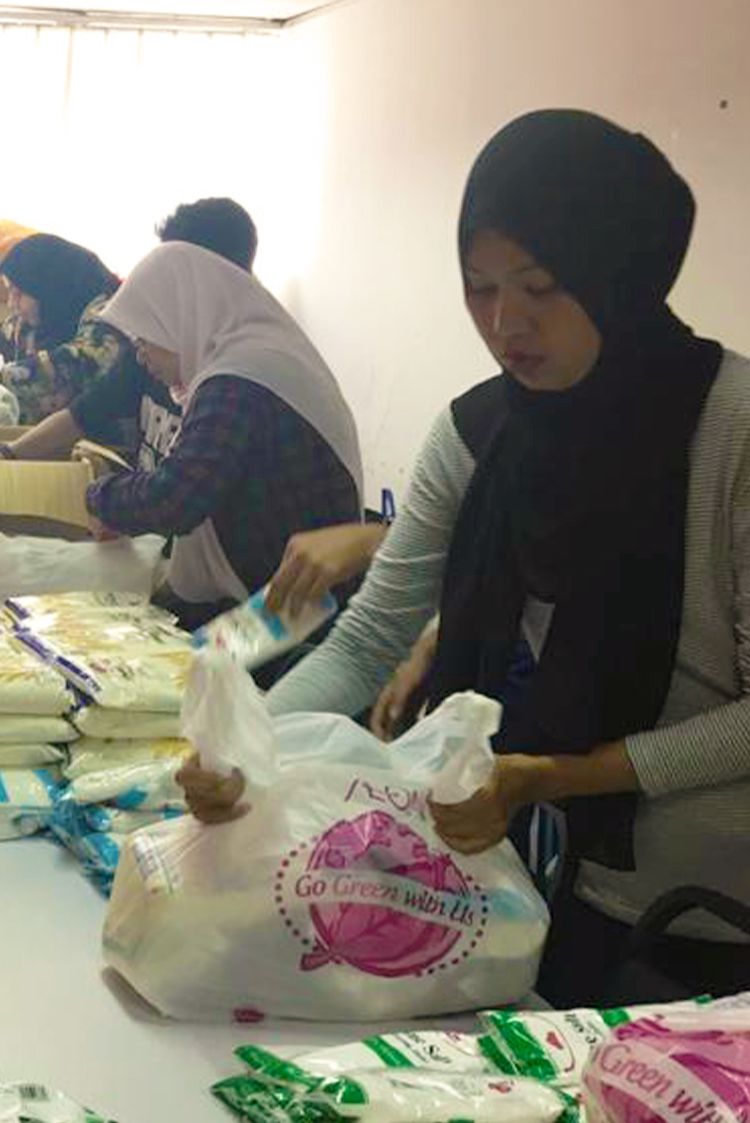
Packing essentials for needy families
Packing essentials for needy families
Beyond the harsh reality of making ends meet while they seek resettlement elsewhere, refugees in Malaysia also contend with xenophobia.
In recent years, the Rohingya people, an ethnic minority that has been violently persecuted in Myanmar, has borne the brunt of this discrimination.
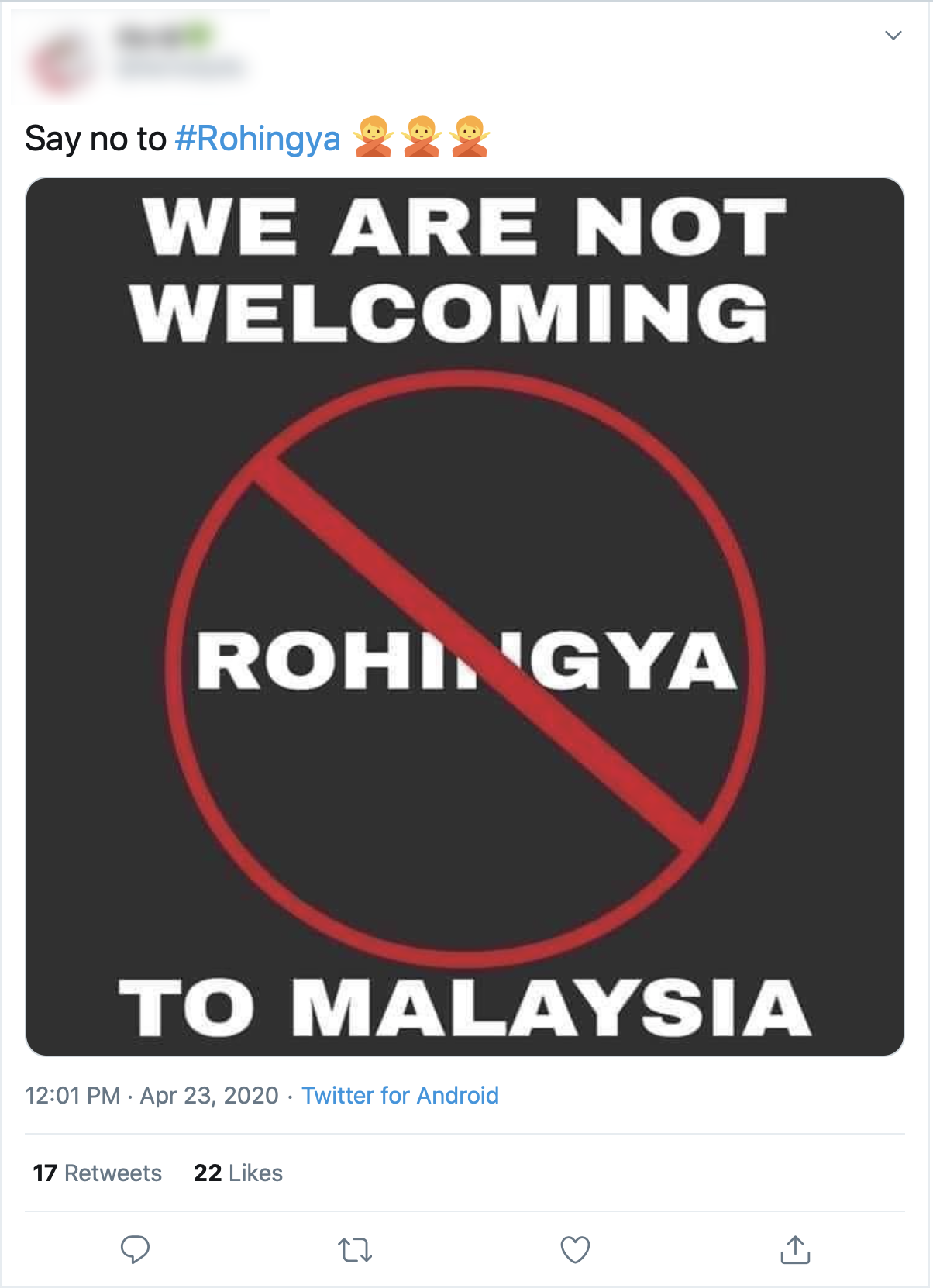
An example of anti-Rohingya messages on social media, taken off a public Twitter account.
An example of anti-Rohingya messages on social media, taken off a public Twitter account.
On June 21, a ban was issued in Kuala Lumpur prohibiting refugees from entering a wholesale market. Even those with an official UNHCR refugee card are denied entry.
Amid the discrimination, Malaysians like Nurul are determined to change the criticism to compassion.
Nurul, who is of mixed heritage and has lived in different countries, values the connections, rather than the differences, between cultures...
"I don't really like to call them refugees or immigrants. I'll just call them family. Because when we're family, we help each other out."
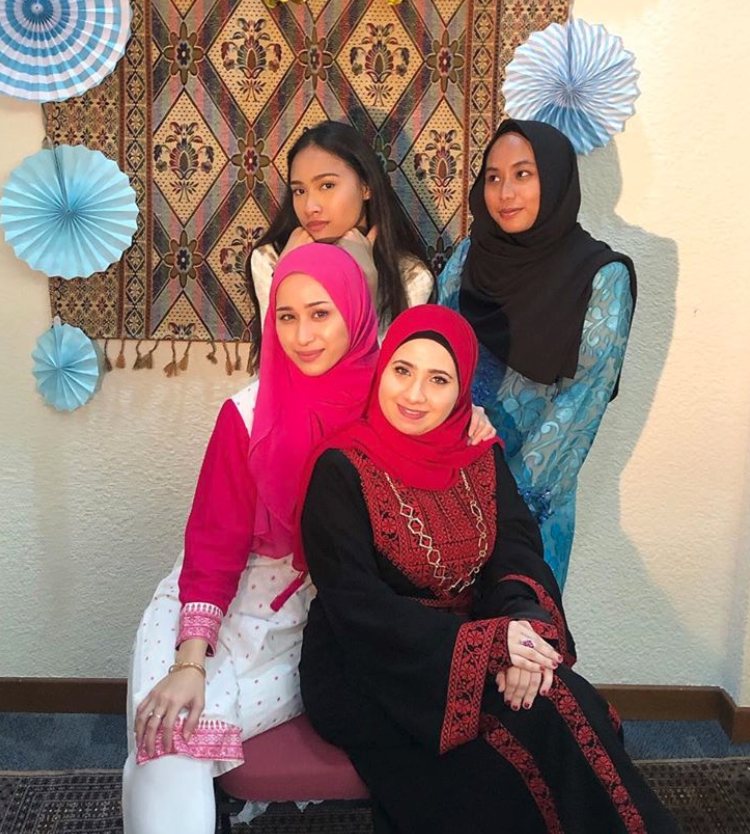
Nurul (bottom left) during Eid celebration with the team
Nurul (bottom left) during Eid celebration with the team
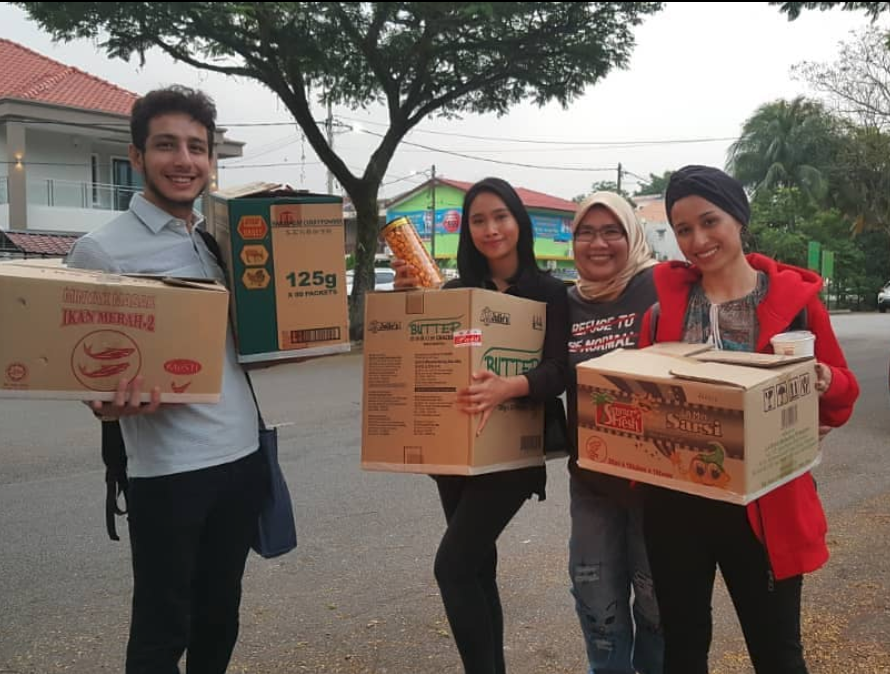
Getting ready for Movie Day event.
Getting ready for Movie Day event.
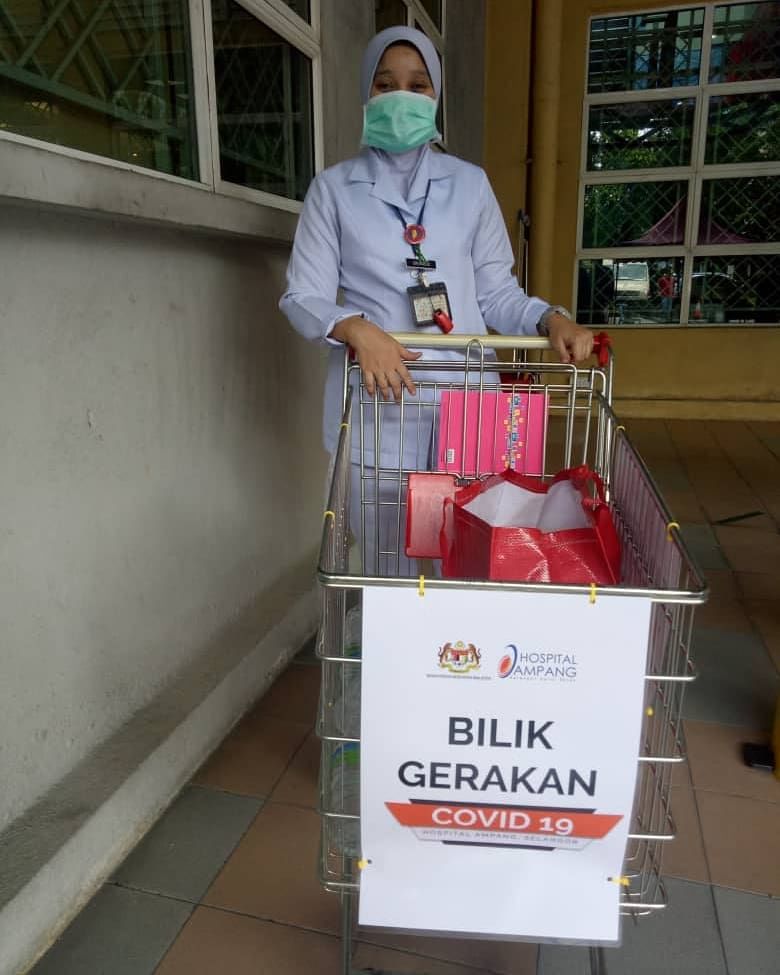
Food received at Ampang Hospital.
Food received at Ampang Hospital.
As for the refugees, cooking for Malaysia's medical workers in the COVID-19 pandemic is just the start of the support they hope to show for the country hosting them.
They have since gone on to cook for refugee and Malaysian families who were fasting in the month of Ramadan, and delivered essentials to low-income Malay fishermen and their families.
Moments like these drive Hasan to do more...
As the network worked hard to support the community, local appreciation and international recognition was being shown to them as well.
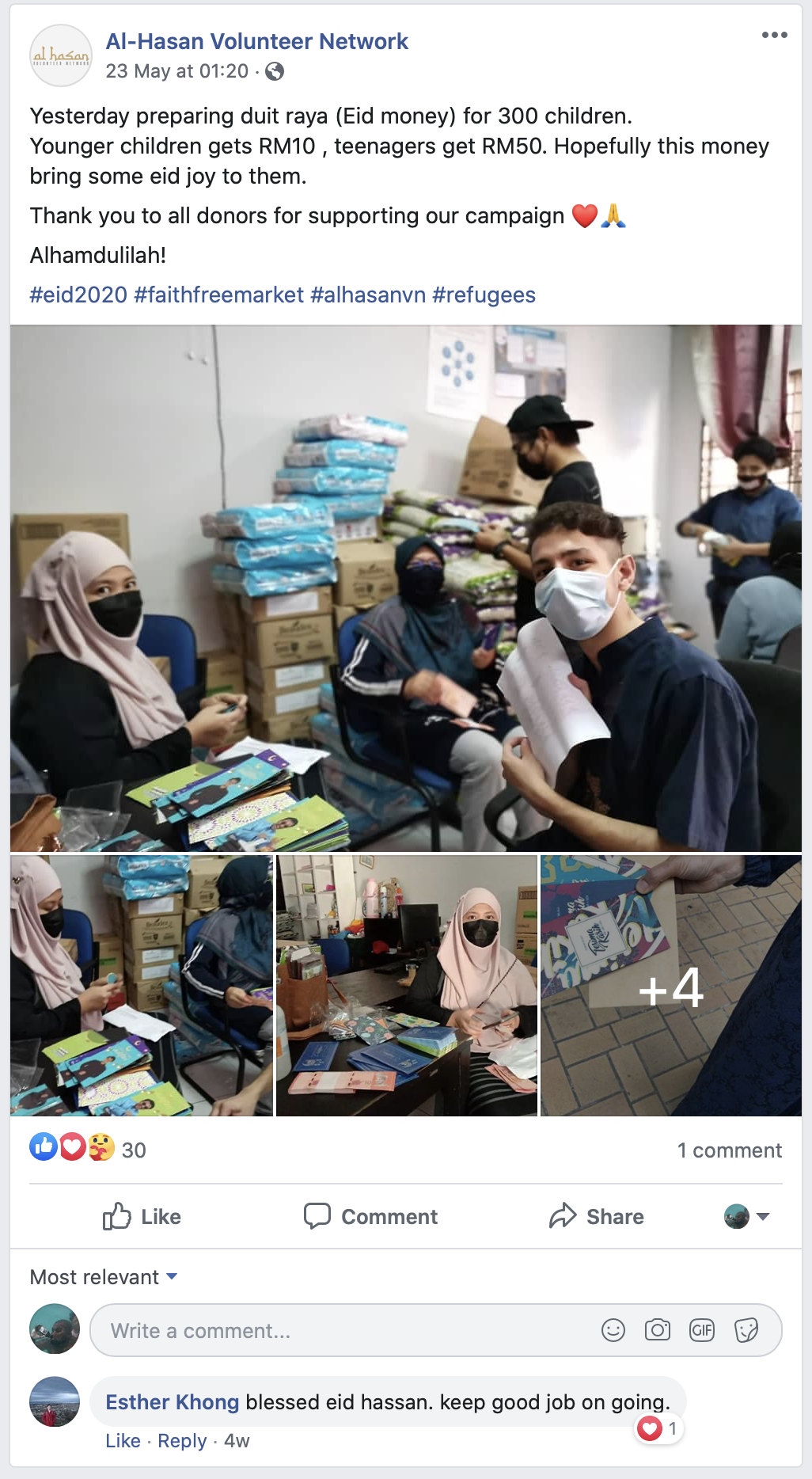
Al-Hasan Volunteer Network's campaign for Eid successfully drew support from the local community. [Image from Al-Hasan Volunteer Network's Facebook page]
Al-Hasan Volunteer Network's campaign for Eid successfully drew support from the local community. [Image from Al-Hasan Volunteer Network's Facebook page]
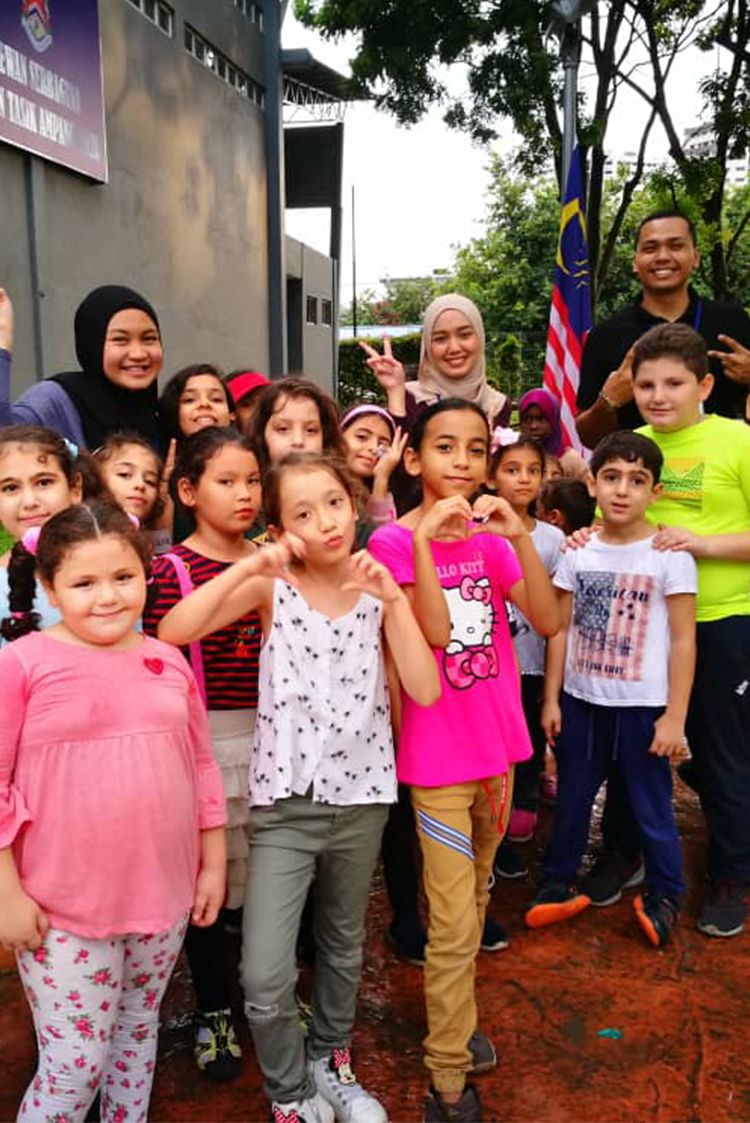
Volunteers with the children on Happiness Day outing
Volunteers with the children on Happiness Day outing
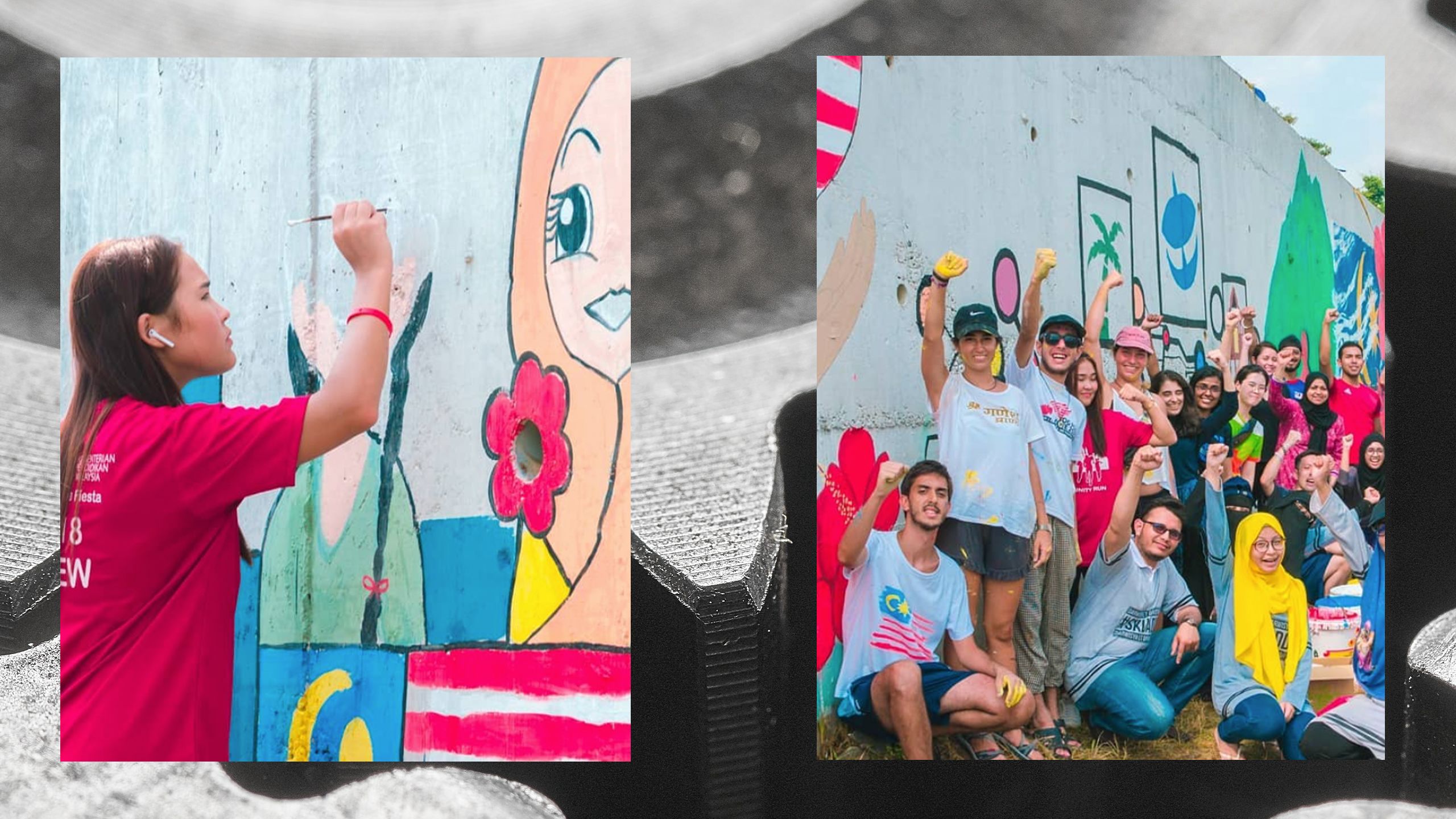
Background Photo by Bill Oxford on Unsplash
Background Photo by Bill Oxford on Unsplash
A way forward
As Malaysia begins to recover from the impact of COVID-19, the network is still hard at work, reaching out and helping all members of society in need...
It is also working towards livelihood projects that will empower refugees to learn and contribute through their skills and better integrate them in the society. Key to this is overcoming the ever-important work of raising awareness...
“Refugees are part of a society
and can contribute to it.”
You can support
Al-Hasan Volunteer Network
by donating, volunteering
or partnering with them.
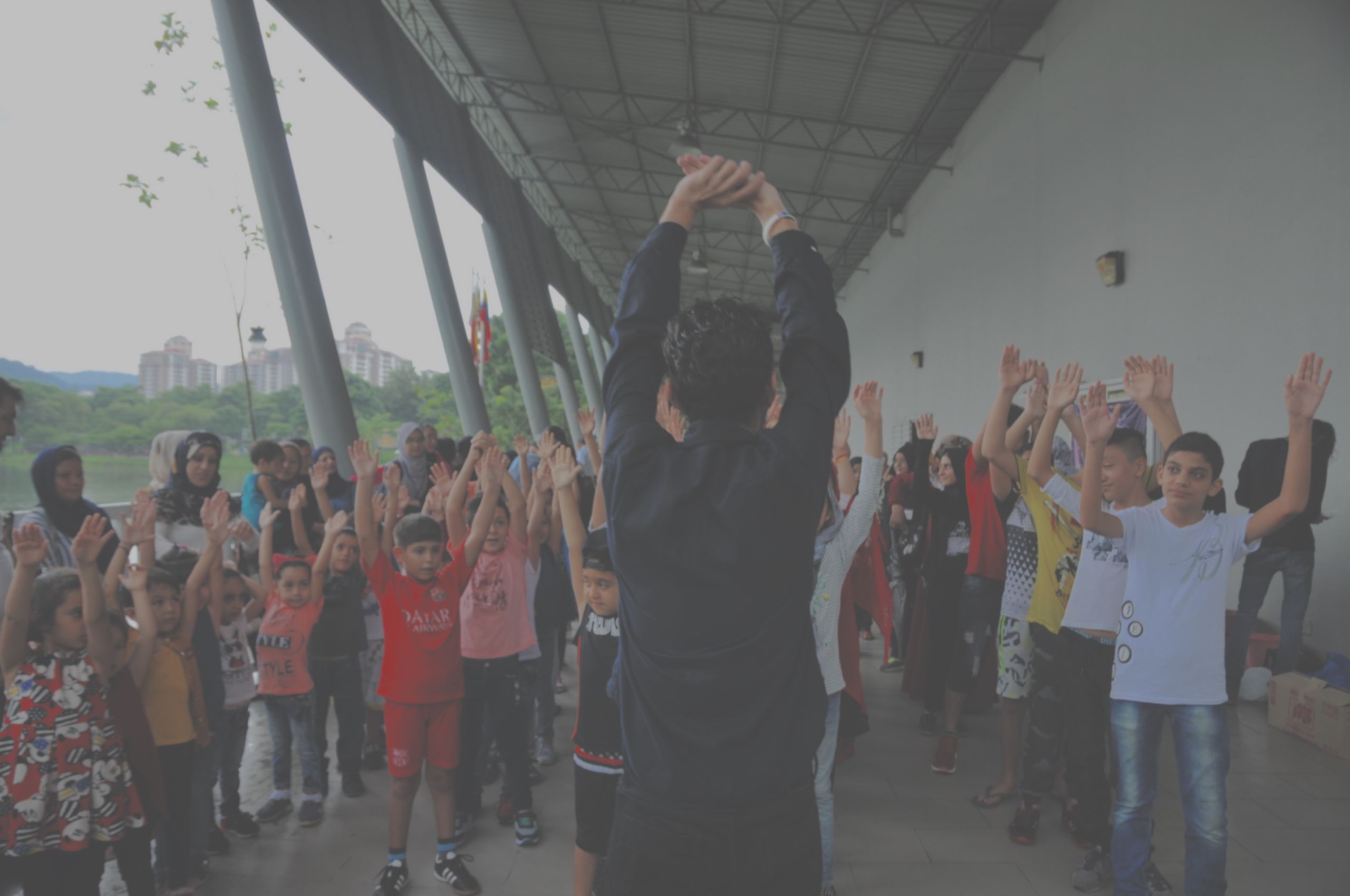
This story is part of Refugees: Displaced not Discouraged, a series by Our Better World on the refugee issues,
where you can discover more stories and ways to take action.
Paths to an open future for refugees
Singapore may not accept refugees, but that's no barrier to these Singaporeans supporting the cause
Singapore may not accept refugees, but that's no barrier to these Singaporeans supporting the cause
The refugee crisis isn’t going away. You can help
A refugee’s problems can’t be solved overnight. But here are some groups helping them get back on their feet, for a start.
A refugee’s problems can’t be solved overnight. But here are some groups helping them get back on their feet, for a start.
Past horrors transformed into future aspirations
Rohingya refugee women find a new lease of life through RWDN, Malaysia’s first NGO led by Rohingya women.
They lost everything. But they’re finding hope on stage
In Malaysia, Parastoo is helping refugees take centre stage in a quest for hope and acceptance.
Over on our Community Blog, refugees and their advocates share their journeys and perspectives in their own words:
The man from everywhere and nowhere
Allies in writing: Refugees shaping their own stories
A choice of sacrifice. A choice of hope
When you help a refugee, you help a neighbour
Education for refugees: Lessons from the ground

CONTRIBUTORS
Shawn Khoong
Producer, Writer and Content Designer
Chris Annadorai
Executive Producer
Al-Hasan Volunteer Network
Hasan Al-Akraa
Photos
